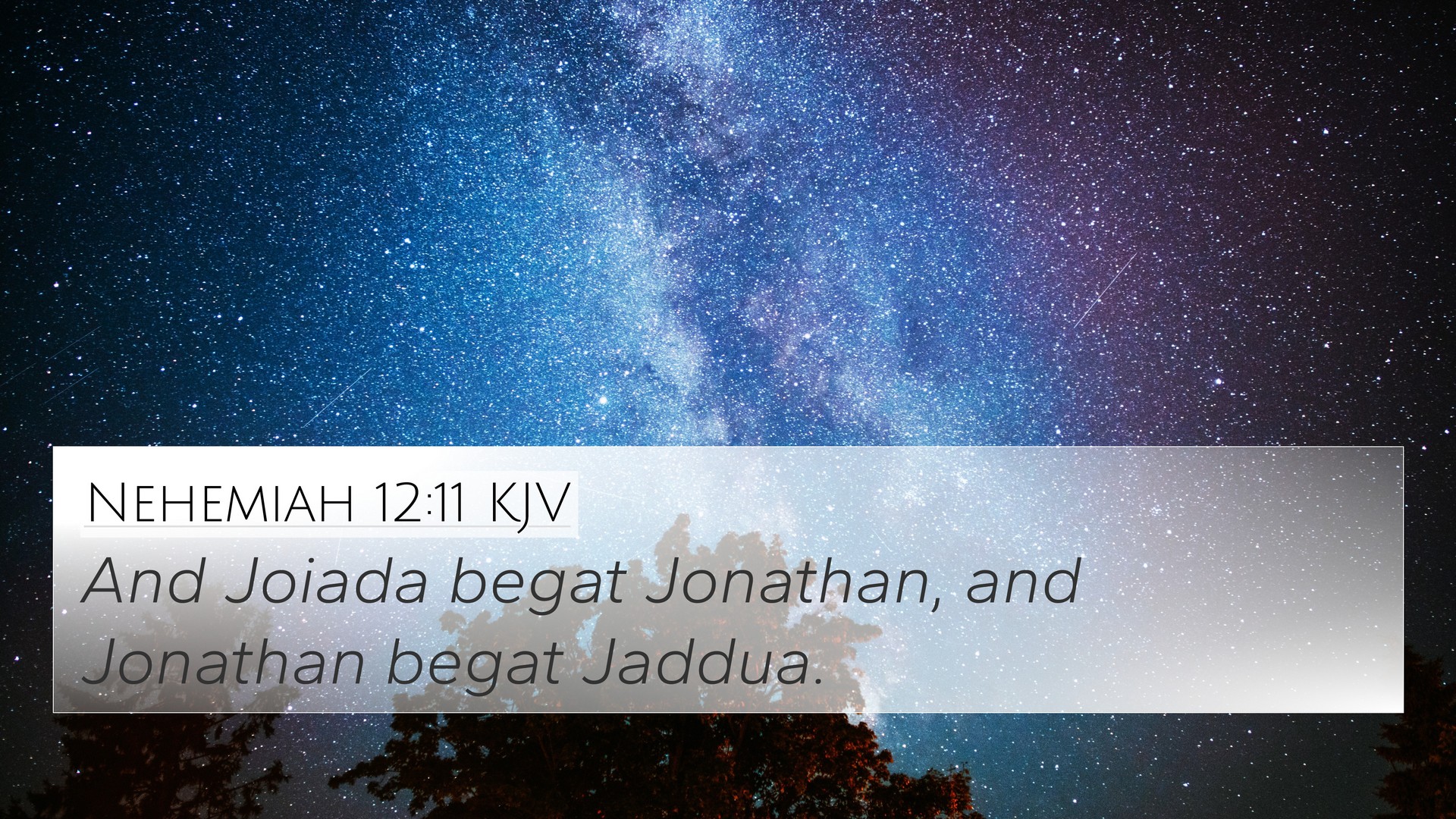Understanding Nehemiah 12:11
Nehemiah 12:11 states: "And the ruler of the house of the father of the priests was Joiada; and the son of Joiada was Jonathan: and Jonathan begat Jaddua." This verse provides essential genealogy and historical context concerning the priestly lineage in ancient Israel.
Summary of Meaning
This verse highlights the importance of lineage in the priestly roles, tracing the descendants from Joiada to Jaddua. Such genealogies are significant in the Bible as they affirm the legitimacy and continuity of the priesthood. Matthew Henry emphasizes that these records also serve as a testament to God's faithfulness in preserving His people and their heritage.
Commentary Insights
- Matthew Henry: Focuses on the significance of the genealogical record, noting its importance in reinstating the people's identity and relationship with God.
- Albert Barnes: Highlights that this lineage establishes the authority of the priests and their role in the temple services, stressing God’s arrangement for worship.
- Adam Clarke: Discusses the implications of each name mentioned, linking them to the religious history of Israel and their continuing role in worship and sacrifice.
Cross-References
Nehemiah 12:11 connects to several key verses that reinforce its message of priestly lineage and the continuing covenant relationship between God and His people:
- 1 Chronicles 6:4-15: A detailed genealogy of Levi's descendants, showcasing the enduring faithful service of priests.
- Ezra 2:36-39: Lists the priests who returned from exile, underlining the restoration of the priesthood after the Babylonian captivity.
- Hebrews 7:11-14: Discusses the priesthood of Christ, situating it within the context of the Levitical priesthood.
- Malachi 2:4-7: Speaks of the priestly covenant, the importance of knowledge, and the responsibility of priests to guide the people spiritually.
- John 1:49: References Nathanael’s confession of Jesus as the Son of God, tying back to the expectation surrounding priestly announcements.
- Luke 1:5-10: Discusses Zechariah, a priest, reinforcing the continuation of the priesthood within God's plan.
- Acts 4:6: Mentions the high priest lineage during the apostles' early ministry, thereby illustrating the ongoing importance of these familial connections.
- Matthew 26:3-4: Discussion of the high priest and elders plotting against Jesus, showing the evolving role of the priesthood.
- Ezekiel 44:15-16: Prophetic notion of the future priests who will serve in the restored temple, highlighting ongoing priestly duty.
- Revelation 1:6: Describes believers being made kings and priests, linking New Testament teachings back to this Old Testament foundation.
Connections Between Bible Verses
The genealogies presented in Nehemiah 12:11 serve as part of a larger theme in scripture concerning God’s faithfulness and the continuation of His covenant people. The preservation of the priestly line emphasizes the importance of heritage in worship practices, linking it through various scripture references that reveal how the Old Testament foundations set the stage for the fulfillment in the New Testament.
Conclusion
Nehemiah 12:11 is not merely a historical reference; it symbolizes the enduring relationship between God and His people, intertwined with references that enrich our understanding of the priesthood and its evolving role in God's redemptive plan. By cross-referencing this verse with others, readers can discern both the continuity of God's covenant and the significance of spiritual leadership established from generation to generation.


